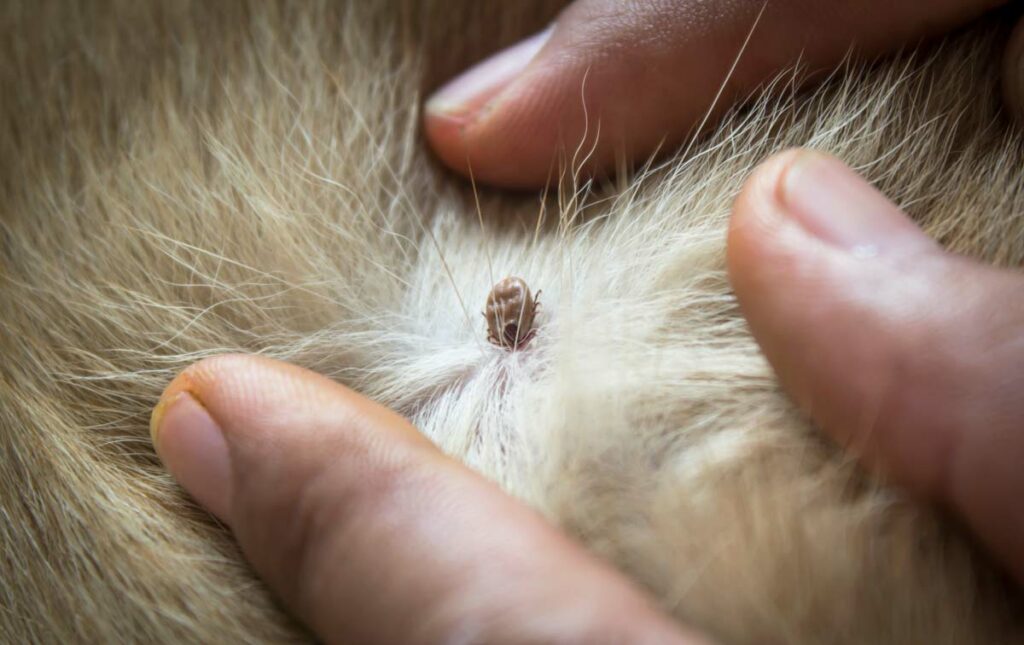
Keep the creepy crawlies off your cuddly cuties
If you ever had head lice as a child you’ll remember how itchy that was. Now imagine if you had them over your entire body! Yuck! Well unfortunately, your pets are susceptible to all sorts of parasites, and some of them can be a lot more serious than an itchy bout of fleas.
Intestinal worms can seriously affect your fur baby’s health, as well as being harmful for humans, while heartworms and ticks can be fatal. That’s why MustCare takes pet parasite control seriously. Your pets will thank you for keeping uninvited guests out of the kennel.
The benefits of parasite control
- Keep your pets feeling comfortable and itch free
- Prevent life-threatening effects from parasites
- Don’t feel concerned about your precious pooch sharing parasites at the dog park
- Don’t stress about parasites spreading to humans or other pets in your home
FAQs
Using a combination of ingested and topical products, we can create a prevention and treatment plan to stop pests from hurting your furry friend.
Controlling your pet’s environment is also essential for parasite control. We can explain the conditions in which parasites thrive and how to remove them from your home.
Intestinal worms is actually an umbrella term for various parasites, such as:
- Roundworms
- Hookworms
- Whipworms
- Tapeworms
These worms can be transmitted if your pet eats wildlife, and can even be contracted simply from being outdoors. If your pet has intestinal worms, they may present a range of symptoms, including:
- Weight loss
- Weakness
- Pale gums
- Diarrhoea
- Bloating
- Vomiting
Thankfully, these parasites can be easily treated, so if you suspect your pet has them, book an appointment.
Heartworms are transmitted by mosquitoes, and as their name suggests, affect your precious pet’s heart.
Symptoms of heartworms in pets include:
- Coughing
- Fatigue
- Not eating
- Weight loss
Untreated heartworms eventually cause heart failure, so if you suspect your pet has been infected, book an appointment immediately. Prevention of heartworm with an annual injection is one of the most effective ways of protecting your dog. It is very costly and dangerous to treat heartworm once it is contracted, so prevention is the key to a happy healthy pet.
Fleas are small insects that feed on the blood of your pets, causing itchiness and discomfort. While not life-threatening on their own, they can transmit other diseases or parasites in a similar manner to mosquitos. You can usually spot fleas by inspecting your pet’s fur and bedding.
Though uncommon, fleas can irritate humans as well. So for your sake (and your pet’s!) book an appointment for treatment if you notice your fur baby scratching more than normal.
Ticks are small insects that live all across Australia, but are particularly troublesome along its East Coast. They burrow into the skin of pets and cause a range of health issues, including:
- Lethargy
- Loss of coordination
- Paralysis
- Vomiting
- Coughing
- Not eating
- Breathing issues
Eventually, if left untreated, pets can die as a result of ticks. If you suspect your pet has picked up a tick, or if you’ve spotted one on their skin or in their fur, book an appointment immediately.
Does your furry friend seem sick or in pain? This could be a sign that they’ve picked up a pesky parasite.
The good news is, parasites are easily treated. So give us a call here at MustCare and book an appointment. We’ll get rid of your uninvited guest in no time!